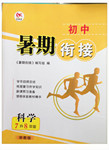题目内容
It’s so nice to hear from her again.______, we last met more than thirty years ago.
A. What’s more B. That’s to say
C. In other words D. Believe it or not
练习册系列答案
 初中暑期衔接系列答案
初中暑期衔接系列答案
相关题目
题目内容
It’s so nice to hear from her again.______, we last met more than thirty years ago.
A. What’s more B. That’s to say
C. In other words D. Believe it or not
 初中暑期衔接系列答案
初中暑期衔接系列答案